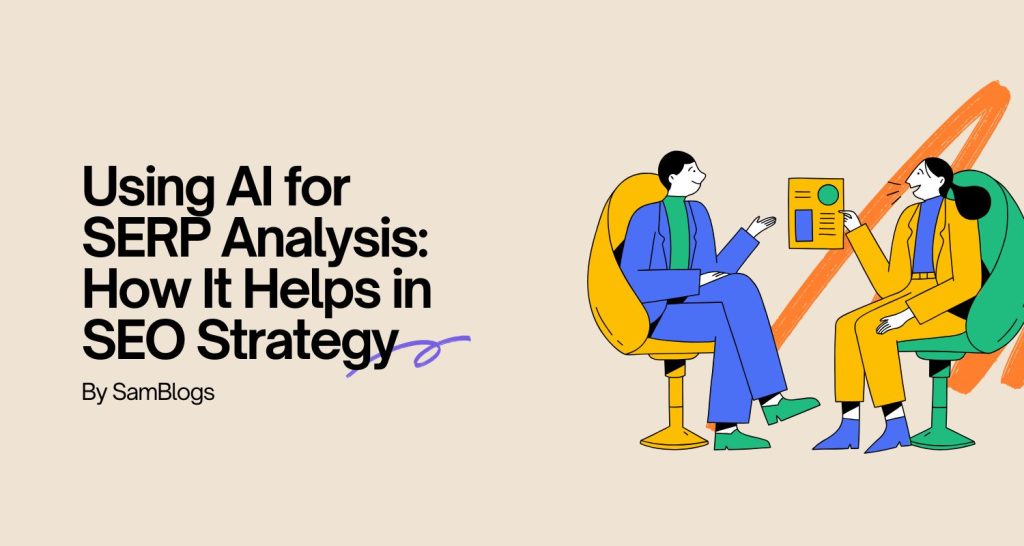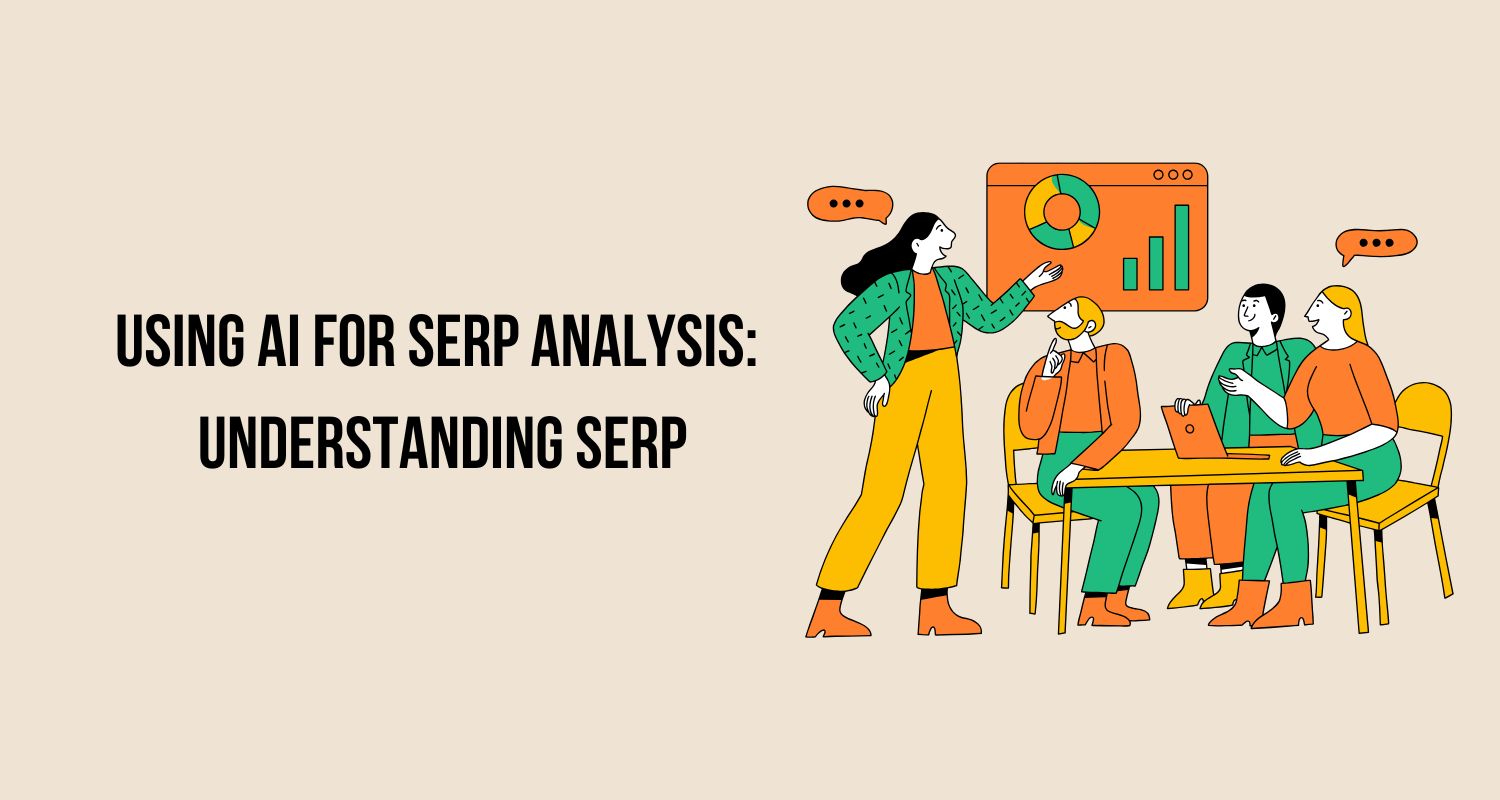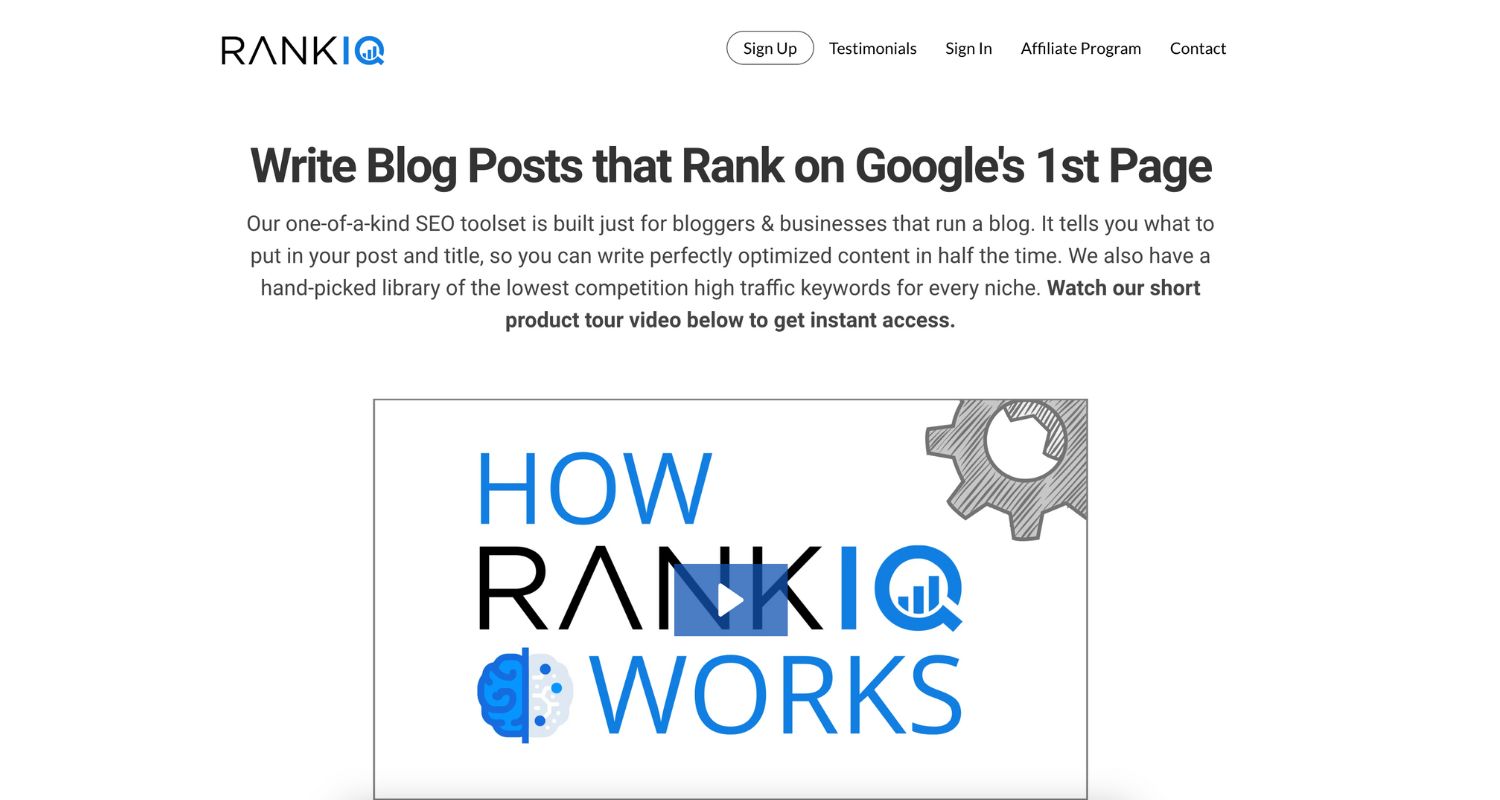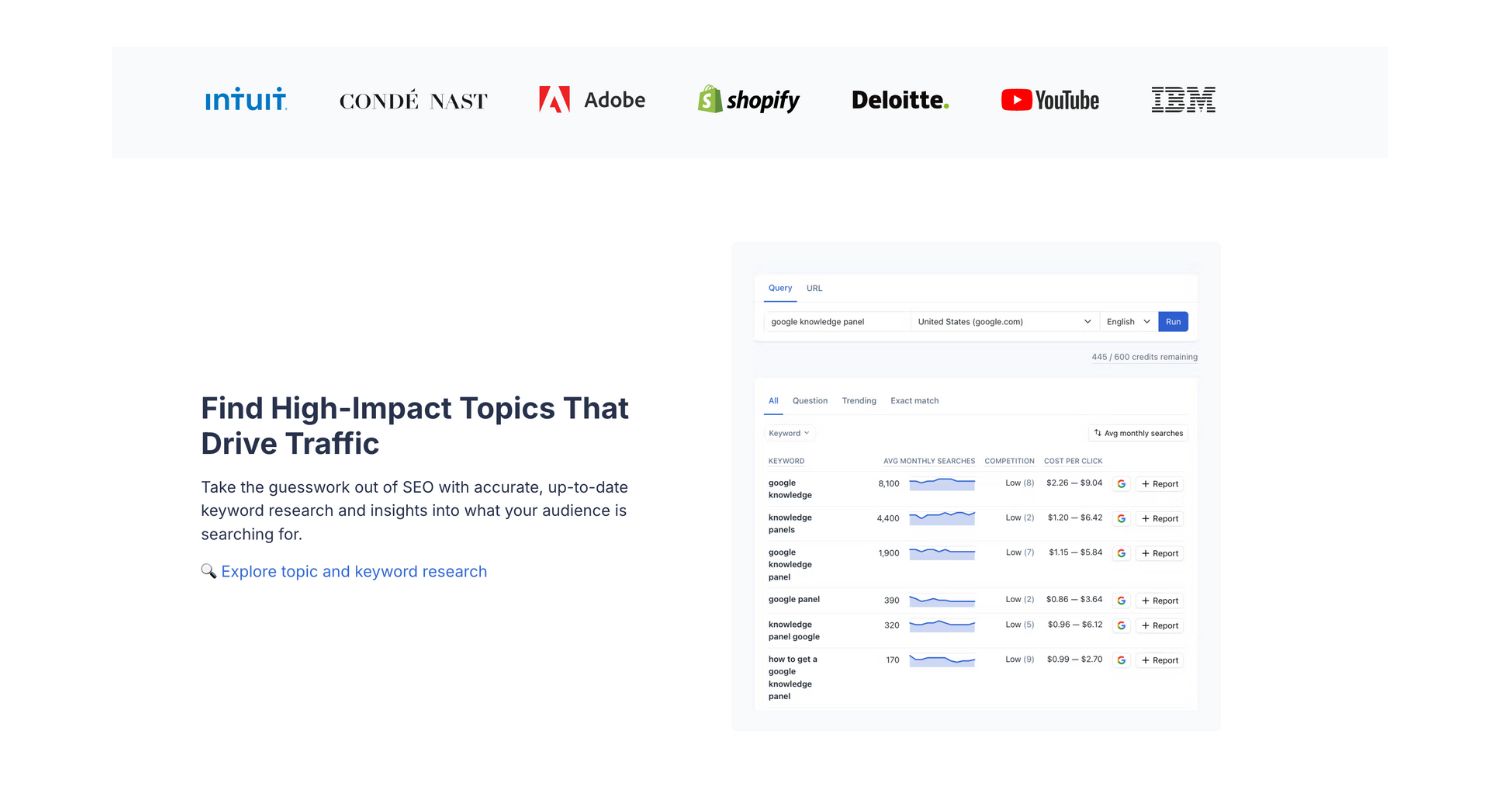One major part of every SEO strategy is a review of one search engine results page. Companies can better reach people if they know how their site ranks on Google and other search engines.
A SERP review shows search objectives, competitor positions, and keyword performance. Artificial intelligence has given rise to a lot more precise and straightforward SERP review. AI can analyze terabytes of information that would take humans hours to compile in seconds. The software keeps tabs on ranking changes, researches competitors, and suggests modifications for materials using artificial intelligence.
For businesses targeting the U.S. market, AI-driven SERP analysis is crucial. Google’s algorithms constantly evolve, and AI tools help businesses adapt to these changes. AI improves decision-making, ensuring that content aligns with search trends.
The article explores the ways AI improves search engine results page evaluation as well as reviews the best AI tools and explains business strategies that use AI insights to optimize their SEO approach.
Contents
Using AI for SERP Analysis: Understanding SERP
What is SERP Analysis?
Companies who want to see how they compete against competitors regarding selected keyword topics in search engines make this activity vital. This chapter will discuss what it means by SERP analysis.
SERP analysis involves:
- Select the top pages that appear first when you type a given term.
- Knowing the search intent after user requests.
- Considering how well competitors come up in search results.
- Monitoring keyword positions through SERPs does not provide all the information needed by businesses. It helps them determine buying trends and user preferences to bridge any gaps between content and available products/services.
Key Features of SERP Analysis
- Rankings of Primary Terms: Determining the position a website occupies for specific keywords. AI tools maintain these assessments within time.
- Search Intent Analysis: Determining why people search certain terms on search engines. Do they require services, products, or information? Artificial intelligence assists in categorizing various search intents including transactional, informational, and navigational among others.
- Highlighted Snippets: Google points to several items in highlights. Tools of artificial intelligence look at why a particular piece of information ranks and suggest ways to enhance it.
- Analysis of Competitors: Analyzing rivals lets companies find out which ones dominate target terms in search results.
- User Engagement Metrics: Recording session length together with first-page exit metrics, which are known as bounce rates, and several page transition counts known as clickthrough rates help to measure user engagement with search results.
How AI Improves SERP Analysis?
One key feature in analyzing Search Engine Results Pages (SERP) is determining website ranking and visibility criteria. Entrepreneurs today can efficiently analyze search patterns, keyword intentions, competitor approaches, and real-time ranking with the help of artificial intelligence techniques.
Here we investigate in what ways artificial intelligence improves several facets of SERP review:
AI-Powered Keyword Research and Intent Analysis
Keyword research is the foundation of SEO. Analyzing millions of searches, AI software finds top keywords driving traffic and conversions. AI weighs several elements including search volume, level of competition, and user intent to recommend the top keywords, unlike classic keyword research. AI-driven systems like Surfer SEO and Clearscope go beyond keyword volume to evaluate search intent constantly and organize searches into:
- Knowledge users want to acquire like-“What is AI in SEO?”
- Users looking for particular websites (e.g., “Google Search Console log,” or “Google incomplete search”).
Purpose allows businesses to produce timely content that fulfills the consumers’ demands. AI can also help in more accurate planning and optimization of content by providing long-tail keywords, detecting emerging search trends, and predicting seasonal keyword changes.
AI in Competitive Analysis
Top-ranking pages can be examined by AI-powered SEO tools to reveal the precise techniques rivals are following. These systems assist in:
- Artificial intelligence finds the sites that link to competitors and recommends high-authority domains for backlink possibilities.
- Content scanning AI technologies evaluate competitor assets to determine the most effective word counts, heading structuring, keyword density, and readability.
AI automation of competitor analysis enables businesses to uncover content vacancies as well as learn from winning tactics before improving their current content with AI-powered solutions.
AI for Featured Snippet Optimization
The high placement of featured snippets on top of Google search results produces great value due to their ability to boost click-through rates (CTR). AI tools help businesses optimize their content for featured snippets by:
- Question-based searches that often provoke snippets (e.g., “How does AI help in SEO?”).
- To improve snippet eligibility, recommended organized content types include bullet points, tables, and step-by-step directions.
- Analyzing prevailing snippets to identify typical patterns in style, content length, and word usage.
AI can also recommend improvements in schema markup, therefore improving search engine knowledge of material and raising chances of getting a snippet position. The optimization of featured snippets leads corporations to collect additional organic visitor traffic while establishing their leadership in their particular domain.
AI and Real-Time SERP Monitoring
The search rankings continuously evolve due to algorithm modifications together with shifting customer behavior patterns as well as market competitor tactics. Organizations use SERP monitoring tools based on artificial intelligence to monitor their search positions instantly and adapt quickly to changes that occur. Companies obtain important insights through AI that grant the following advantages:
- Ranking position adjustments become immediately visible so immediate action can be taken.
- Companies need to transform their content methods because of Google algorithm adjustments.
- The company should fix technical SEO problems by addressing indexation difficulties working to improve page speed performance and repairing all broken links.
- Headlines and meta descriptions need optimization to achieve better CTR engagement.
Through real-time monitoring powered by artificial intelligence companies can track their competitors while identifying new ranking possibilities to enhance their SEO strategies in real time. AI provides automated SERP examination to deliver faster responses together with enhanced ranking stability through its automated SERP examination system.
Top 5 Best AI Tools for SERP Analysis
Users complete SERP reviews more efficiently with AI-powered SEO software that uses data-based systems to analyze keywords and track competitors while optimizing content. Marketers and companies operating in the United States benefit from the best artificial intelligence software tools designed to improve their SEO practices.
1. SEMrush
The wide functionality of SEMrush reasons why businesses alongside marketers treat it as their essential tool for complete search engine investigation. Customers can rank their performance together with tracking opportunities and viewing their competitors. Businesses can improve their visibility and content tactics using AI-driven insights.
Key features comprise:
- AI-driven keyword research offering low competition terms that help content rank better.
- Competitor analysis helps to track search results, backlinks, and content tactics of competitors and refine SEO strategy.
- SERP tracking with live updates lets companies stay ahead by spotting ranking variations and algorithm modifications.
- SEO site audits identify technical issues impacting rankings, such as page speed issues, duplicate content, and dead links.
- Content marketing consultancy coming from search trends and top-rated material guarantees that every article matches consumer intents.
SEMrush is ideal for businesses looking to dominate search results, increase online presence, and optimize paid search campaigns due to its robust AI-based functionality.
2. Ahrefs
Ahrefs is particularly famous for its backlink and content analysis capabilities. For marketers interested in increasing domain authority, monitoring competition success, and tailoring content, this software is pretty essential. SEO experts, content authors, and companies regularly use Ahrefs to improve their link-building approach.
Key features comprise:
- Keyword difficulty scores enable users to find high-ranking search terms, hence improving content strategy.
- Thorough site evaluations to identify and address SEO problems influencing rankings, therefore maintaining websites optimized for search engines.
- Backlink monitoring to keep an eye on competitors’ link-building plans and find backlink opportunities for improved domain authority.
- An AI-powered content gap analysis looks for missing ideas and words improving rankings to enable content to compete.
- Live SERP analysis allows you to monitor ranking swings, remain up-to-date with search trends, and forecast changes in rank.
Ahrefs is especially helpful for businesses that have to focus on backlinking, keyword research, and competitor SEO analysis to keep pace in search results. It also lets marketers have an excellent understanding of reference domains, therefore allowing them to generate quality links for constant SEO development.
3. Surfer SEO
Surfer SEO leads the market for AI-driven content optimization because it analyzes both leading pages and contemporary search engine trends. Users who run search engine optimization and create content articles need Surfer SEO as their fundamental tool for completing their content planning activities.
Key features comprise:
- SERP research reveals where present approaches are lacking by comparing content organization with top-ranking peers.
- Content scoring rates optimization levels and proposes changes to guarantee good search engine algorithm compatibility.
- Keyword density recommendations to ensure proper keyword usage without overstuffing, maintaining readability and SEO balance.
- Internal linking guidance to enhance ranking in search results, user navigation, and site authority.
Surfer SEO will be extremely useful for content marketers, bloggers, and companies wanting to optimize their on-page SEO based on AI-generated suggestions.
4. RankIQ
RankIQ is an artificial intelligence-powered tool created specifically for bloggers, small companies, and content marketers wishing to increase organic traffic. Leveraging AI insights, makes keyword research and content optimization easier, thus making it easier for non-technical users to improve their rankings.
Key features comprise:
- Keyword ideas with small competition help content rank more quickly and generate more organic traffic with less effort.
- Artificial intelligence-powered content briefs support authors in producing well-optimized blog entries, guaranteeing that material conforms with Google’s rating criteria.
- SERP insights help one to evaluate things that search and offer ideas, therefore simplifying the use of content strategies.
- Readability analysis to ensure content is easy to understand and user-friendly, improving engagement and dwell time.
- Real-time SEO scoring to evaluate content before publishing, offering suggestions for structure, keyword use, and metadata.
Blogs and website owners who want quick SEO wins through attention to untapped keyword opportunities will especially appreciate RankIQ. It is an excellent tool for those who don’t have extensive technical skills but desire a simple, AI-powered solution for content optimization.
5. Clearscope
An artificial intelligence-driven content optimization tool, Clearscope assists companies in producing well-written, search-friendly material. The platform strengthens SEO tactics through its ability to provide token relevance ratings and perform competitive research and topic discovery functions.
Key features comprise:
- Competitive content analysis that reveals room for growth by contrasting ideas with top-ranking sites.
- For keyword relevance scoring to ensure that content aligns with search intent, thus allowing businesses to create leading-ranking ideas.
- Competitive content analysis that indicates room for improvement by comparing ideas with leading-ranking pages.
- Ensuring that content appeals to both search engines and users involves readability enhancements to make it more engaging.
- SERP-based content optimization helps companies straighten body content, meta descriptions, and headlines for improved ranking possibilities.
For businesses, content writers, and SEO experts aiming to leverage artificial intelligence knowledge to perfect product descriptions, landing pages, and blog posts, Clearscope rises high on the list of suggestions. Google Docs integration allows writers to easily enhance SEO while they are creating material.
How AI-Driven SERP Analysis Improve SEO Strategy?
Using artificial intelligence-driven SERP analysis, companies get valuable information to help them polish their search rankings, perfect content, and refine search engine optimization strategies. AI-powered tools help marketers identify content gaps, raise CTR, strengthen local SEO, and create reports automatically for more informed decision-making. AI enhances search engine optimization by the points listed below.
Identifying Content Gaps and Opportunities
Using artificial intelligence, search results are scanned to find undervalued words and absent subjects. This information could be utilized by companies to create content that not only fills these gaps but also outperforms competitors. If, say, competitors rank for a keyword but don’t cover specific subtopics, AI identifies these opportunities so that marketers can produce more comprehensive articles. This does the trick of increasing ratings, enhances topical proficiency, and increases engagement. Through AI-powered content suggestions, businesses will always be ahead with shifting search trends and leading the pack.
Boosting CTR (Click-Through Rate) with AI Insights
Improved Google positions follow from a larger CTR, to which artificially intelligent technologies are squarely integral to upgrading. The Cognitive system suggests changes for better click performance based on meta descriptions together with user behavior reports and title tag analysis. These tools assist in locating low CTR and underperforming web pages through power word and emotional cue optimization to enhance user interaction and then suggest multiple headline A/B tests.
Enhancing Local SEO with AI SERP Analysis
AI-driven SERP analysis helps to maximize location-based search visibility, thereby greatly benefiting local companies. AI monitors local search patterns and provides top keywords that are particular to certain regions. It also tracks Google My Business ratings to guarantee companies strengthen their local visibility. Through AI-based consumer review analysis, companies can detect sentiment patterns to promptly respond to criticism thus helping maintain their reputation. Strong local search engine ratings, more foot traffic, and higher customer confidence result from this.
Automating SEO Reporting and Insights
The automation of data analysis through artificial intelligence produces simplified search engine optimization reports which also results in faster reports and enhanced accuracy. The reports created by AI algorithms show keyword search progression data in addition to company benchmarks and detailed content refinement recommendations. Such research tools allow businesses to monitor growing trends while identifying commercial weaknesses and strengths and making selections using factual information. AI-based automation allows marketers to allocate more time to strategic planning instead of lengthy manual research so they improve their SEO campaign performance.
The Future of AI in SERP Analysis
AI will keep changing SEO, therefore improving SERP analysis and efficiency. Employing artificial intelligence-based predictive SEO analysis will help companies ahead of the curve with search trends.
- Optimization of AI-Generated Content: AI will generate SEO-optimized materials by studying top-ranking pages.
- Predictive SEO Analytics: Predictive SEO analytics enable companies to schedule their strategy ahead through artificial intelligence to predict changes in ratings.
- Voice Search Optimization: Algorithms evaluating native language patterns provide artificial help for voice search optimization to improve site voice search ranking.
- Automated Technical SEO: AI will automatically identify and solve problems including mobile usability and page speed.
Conclusion
SERP analysis is quicker, more precise, and more efficient with artificial intelligence. Firms that utilize artificial intelligence tools are more aware of keyword habits, competitor strategy, and shopper patterns. SERP analysis using AI helps achieve better search engine rankings, more traffic, and conversions.
Businesses employing AI-based SEO tools will remain at the forefront of the competitive online space. While artificial intelligence improves decision-making and execution of strategy, it does not replace human knowledge.
FAQs
- Can artificial intelligence replace manual SERP analysis?
AI helps with data compilation and analysis, but strategy planning and content creativity require human knowledge.
- How does artificial intelligence aid keyword research?
By processing vast search datasets artificial intelligence establishes the proper keywords together with search purpose that helps organizations target their desired audience specifically.
- Which tool is the best artificial intelligence option for SERP analysis?
For competitive research on companies, the three top keyword tracking systems are SEMrush, Ahrefs, and Surfer SEO.
- How often will I need to review SERPs?
Particularly for companies in fast-moving industries, regular monitoring is vital since search trends and ranks change often.
- Does artificial intelligence influence the next SEO plans?
AI will indeed keep changing and offer more depth into search behavior and ranking criteria, hence making SEO more data-driven and effective.









